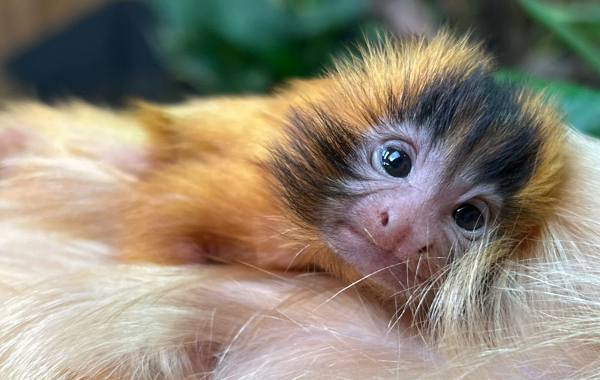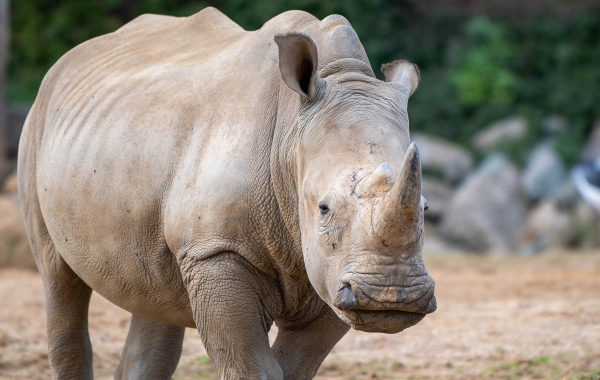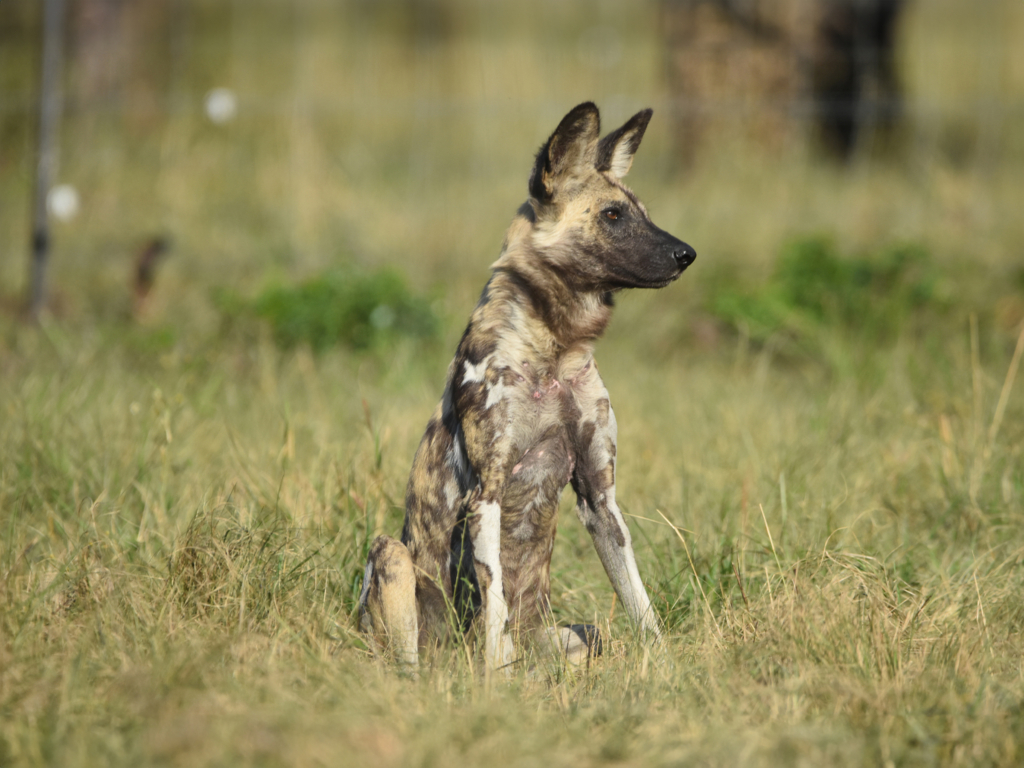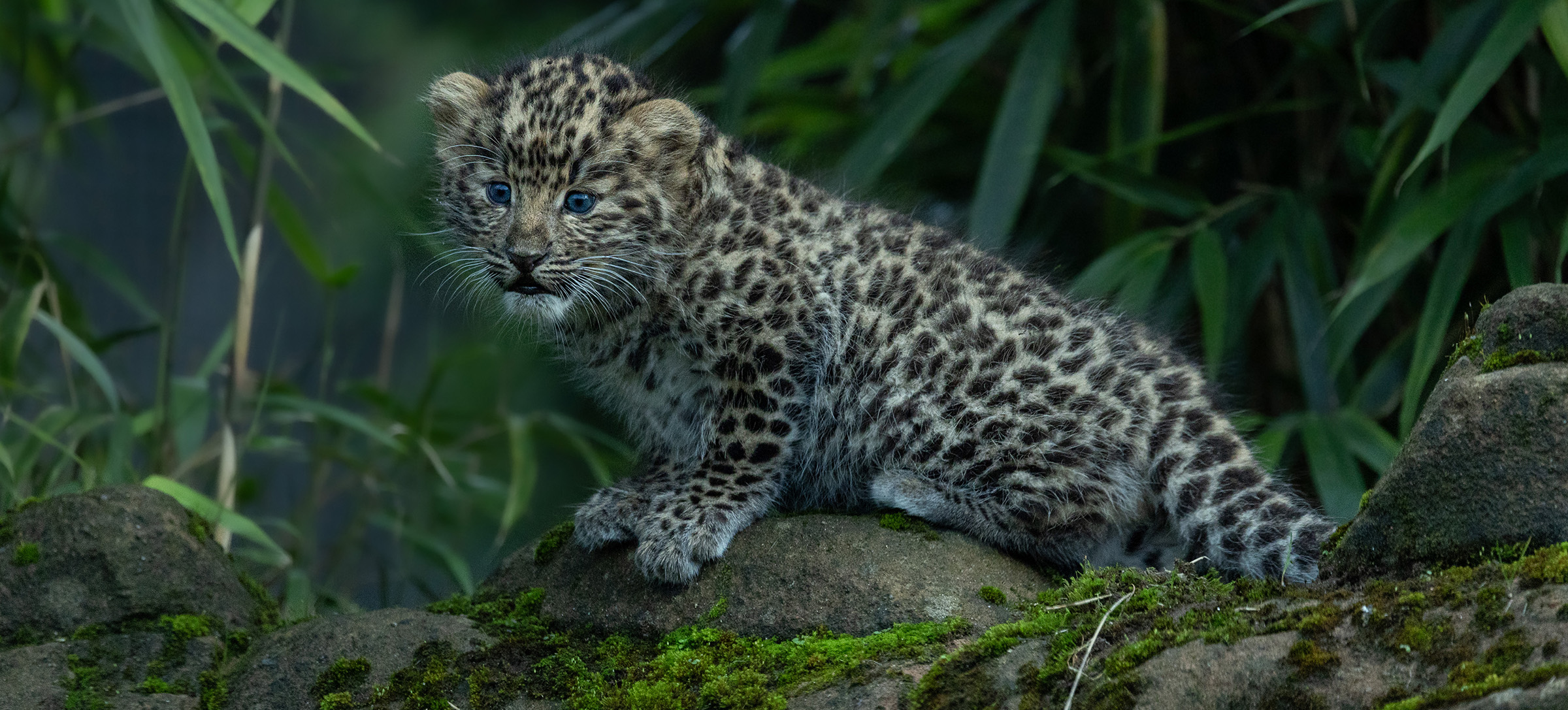
The miserable weather hasn’t dampened the spirits at Colchester Zoo as our recent Amur leopard cubs have been out exploring their habitat with mum, Esra, at various times each day. Their appearance has been putting smiles on the faces of staff and visitors who have been lucky enough to capture a glimpse.
“The cubs have now started to venture into the main outside habitat. Mum, Ersa, is keeping a watchful eye and quickly returns the pair to the indoor area when she feels they’ve gone too far. There is one cub that is a little more adventurous than the other but each day they are both becoming more confident. They are only outside occasionally so if you cannot see them, it is likely that they are sleeping in their den. Both cubs are healthy and we look forward to finding out their sexes in due course.”
– Emma Rasey, Colchester Zoo’s Carnivore Team Leader
Now is a great time to visit Colchester Zoo with the return of our January Blues offer, allowing visitors to explore from as little as £10 per person from 6th January to 14th February 2025! With the possibility of catching sight of the Amur leopard cubs and discovering the wonders of an array of wildlife, this is a no brainer!
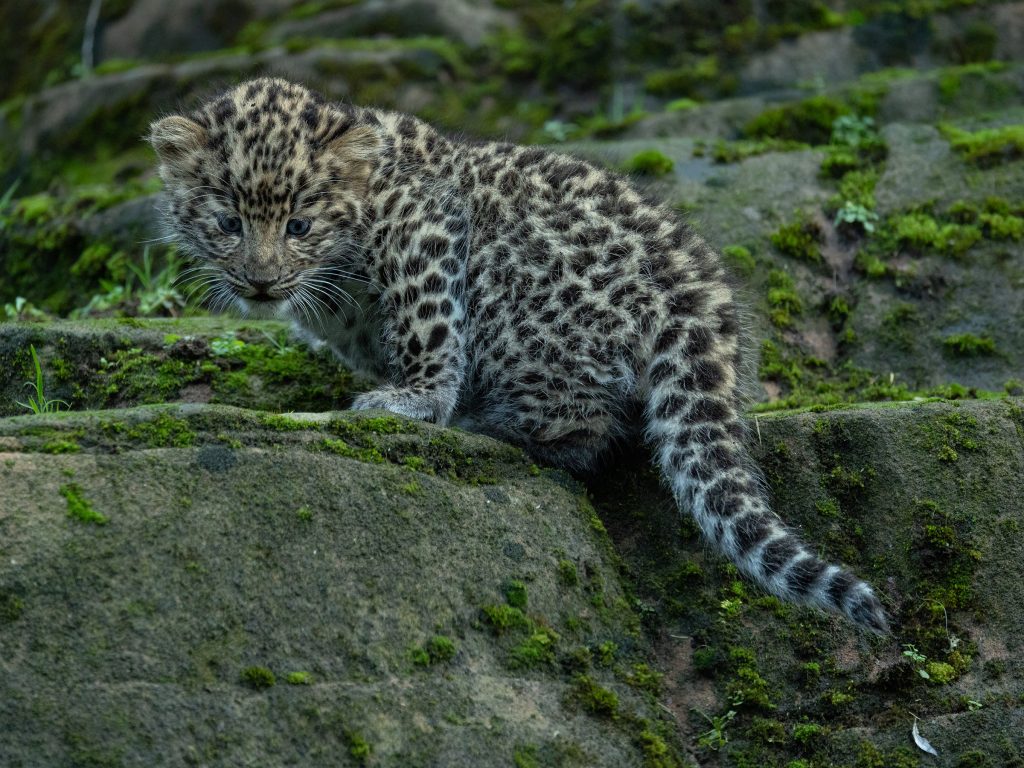
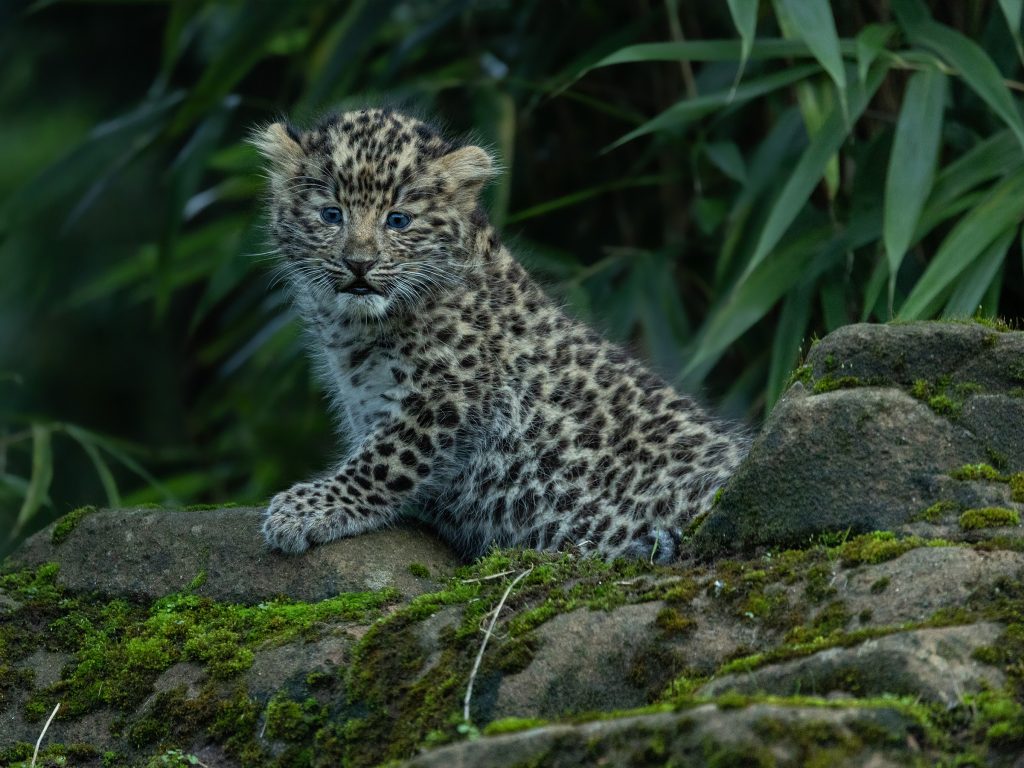
Furthermore, each and every visit to Colchester Zoo assists the vital conservation work that we assist not only at the Zoo itself but worldwide too. So, you can visit knowing that you have contributed to caring for wildlife and wild places and to help not only the Amur leopard cubs but an array of endangered species who critically need our support.
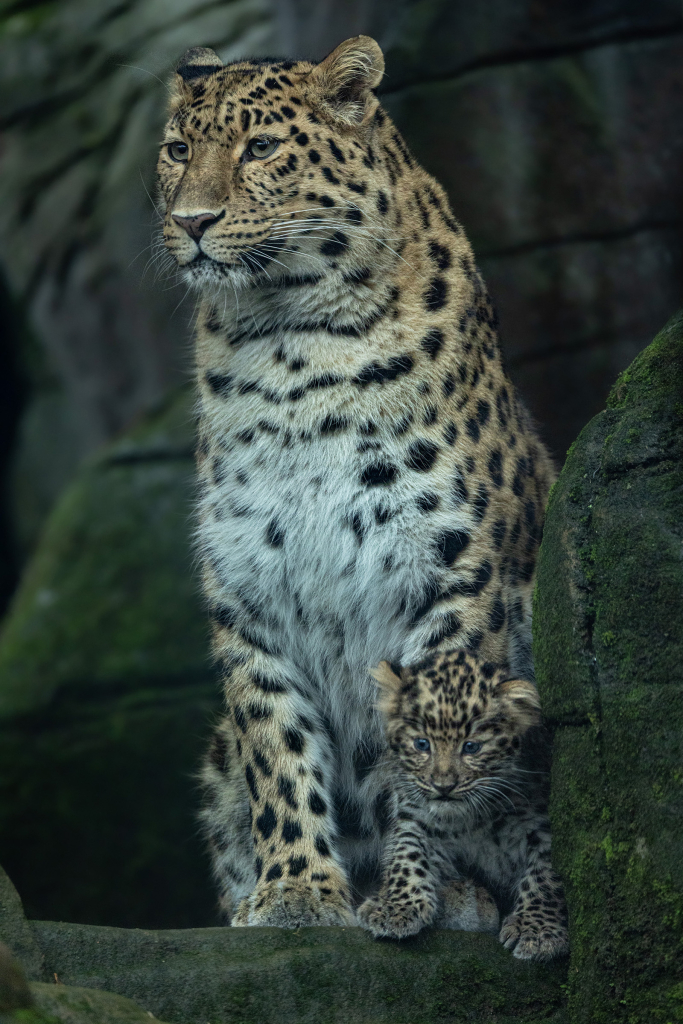
Amur leopards live in temperate forests in the Russian Far East and north-east China. It is estimated that there are only around 70 Amur leopards left in the wild. They are threatened by a number of factors including being hunted for their fur and use in traditional Chinese medicines; their habitat being destroyed causing depletion of their prey; their small population also puts them at risk from catastrophes such as fire, disease and inbreeding. This is why conservation of this species is vital.
Although the Amur leopard cubs are beginning to go outside on occasion, we kindly ask that visitors remain quiet in the area whilst they settle into their new environment.

